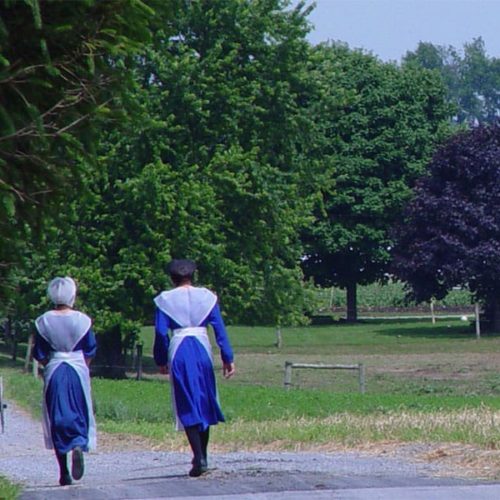Introduction
We’re continuing our series on reporters who have published powerful stories. This week, we’re featuring Sarah McClure, who reported on sexual abuse in Amish communities by family members and clergy for Cosmopolitan and Type Investigations. McClure’s connection to Amish country comes from her fiancé, who grew up in Pennsylvania — a state that nearly 80,000 Amish call home.
For years, she interacted with Amish in Central Market in Lancaster County but explained that she knew little outside of those social interactions. As a journalist, she was curious and wanted to understand the community and what issues were important to its members — beyond the tourism façade. What resulted was a powerful story that included the Amish community after #MeToo survivors came out of the shadows — perhaps for the first time in their 300-year history.
How did you get the story? What led you to pursue it?
The issue of a “widespread, decentralized cover-up of child sexual assault by Amish clergy” was something that routinely came up in my conversations with Amish. It stunned me that everyone had an abuse story. I was alarmed by the heartbreaking stories of the victims, but I decided to pursue this investigation after hearing about the resistance that victims encountered from the church about reporting abuse.
Amish described powerful tactics taken by their church leaders to silence and intimidate victims. Court officials also hinted at these tactics — they described entire Amish congregations showing up in court to support the defendant, not the victim. Judges and district attorneys told me about letters — written using identical language — asking for mercy for the defendant.
Later, in my reporting, I uncovered a VHS that shows an Amish incest case. The family, including the child victims, appealed to the court on behalf of a father who was sexually abusing his daughters, and successfully got his charges downgraded from incest to sexual abuse in order that the father could be eligible for probation, not prison.
What were the challenges of reporting and how did you navigate them?
Accessing an insular community like the Amish required time and a listening approach rather than parachuting into their community with pointed, voyeuristic questions. I didn’t want to interview the Amish in a one-dimensional manner. I wanted to learn what it’s like growing up Amish, their culture and understand them beyond their trauma. I also tried to be accessible, which meant being available at all hours to pick up the phone, and keeping in constant communication. I spent a good deal traveling across states to meet sources.
Communication was tricky: most Amish don’t use the internet or smartphones, and if they use landline phones, they keep them outside their house, so if I called, I would leave a voicemail and get a call back days later. Other times, I wrote letters to Amish and then received a call back.
Another challenge was combing through case files evidencing states’ sex crimes in order to identify and pull out those belonging to the Amish community. I had a system that helped me as I went through hundreds of cases and police reports but I also had tremendous support from researchers at Type Investigations.
The takeaway: Understanding survivors beyond their trauma is one key to reporting on abuse.


Join the conversation
Show Comments